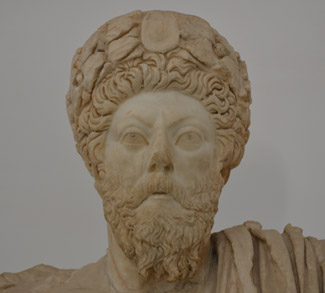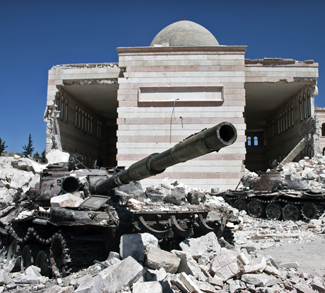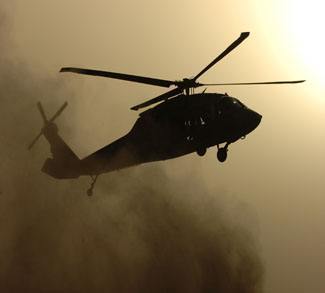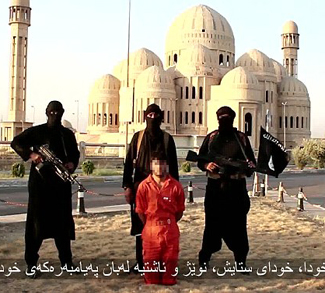While the element of surprise is the stamp of all terror attacks, the assault against the Bardo museum in Tunis that left 20 people dead was not really a surprise. The foreign victims represented several European nationalities, including Spanish, German, Italian, and Polish, and they were tourists who had arrived on a cruise ship that docked in Tunis for the day. The attackers observed the now standard modus operandi of choosing a ‘soft’ target, as seen in Paris last January, when the victims were cartoonists at the Charlie Hebdo newspaper in Paris. In this case, the targets were tourists in a museum, one located in the heart of Tunis and very close to Parliament. The hostage-taking that followed the initial shooting served to extend media coverage and many fear that this is just the beginning.
Yet any effort to resolve the problem should extend beyond the ‘jihadist’ narrative and consider the many socio-economic incentives that have contributed to its exacerbation.
Authorities in the North African country have been fearing such an event and over the past few months, they have increased surveillance and control operations and made dozens of arrests, conducting raids along the borders. Unfortunately, Tunisia, even though it is the one effective Arab democracy to emerge from the so-called ‘Arab Spring’ that it initiated in 2011 with the ousting of President Ben Ali, it has been forced to pay the price for its geographic proximity to the Libyan powder keg. Within Tunisia proper, Islamic State has broadcast videos threatening to set Tunisia on fire “from Bordj Khadra (deep south) to Bizerte (far north)” unless Tunisian security stopped arresting and killing Tunisian militants. Tunisian security forces have spoiled terrorists’ plans to set off bombs in shopping centers while intercepting recruiters of young men to fight in the Libyan ‘jihad’; 22 such suspects have been stopped in the old city of Kairouan.
The militants infiltrating from Libya are not necessarily Libyan, which makes the current phenomenon more complex. Many would be jihadists are reaching Libya in droves from the Gulf States to join the ranks of the various Islamist groups. Many could hail from Europe itself, given that Tunisia allows EU citizens to enter the country without a visa. Libya’s anarchy has generated conditions very similar to those in Syria. Never before, not even in Osama Bin Laden’s Afghanistan, did a foreign militant organization enjoy such territorial control of a sovereign – if beaten up – state. Tunisia is a paragon of stability when compared to Syria, Libya, and even Egypt, but the growing number of arrests and their continued ability to strike fear suggest that Tunisia is a rising target of choice among terror groups. Its security, stability and coexistence between secular and religious parties in the most secular state framework of the Arab World make it a very soft target.
The government, for some time, has warned about the risk posed by some 2,400 (some estimates say 3,000) veterans fighters that have returned from the anarchy of Libya, Syria, and Iraq. It was after all a large contingent of foreign fighters that returned from Afghanistan to Algeria that triggered its Islamic inspired civil war in the 1990s. Most have returned with the ambition to expand the domestic extremist fronts, of which there is already no shortage. There is the Okba bin Nafi group, spawned as an al-Qaida in the Maghreb (AQIM) offshoot, which before the days of ISIS was the pre-eminent armed Islamist force in North Africa and the Sahel. In Tunisia, AQIM has led several raids against soldiers and police. Then there is ‘Ansar al-Sharia,’ which has close links to militants in Libya and is suspected of having killed at least two Tunisian parliamentarians (Mohamed Brahmi, Chokri Belaid). European investigations of the militant phenomenon have uncovered a number of elements tied to this group. Islamic State, or ISIS, represents the latest and perhaps the most dangerous of the groups; they can deploy hundreds of battle-trained fighters, who have returned from Syria and Libya.
The attacks have some elements in common with those that have occurred in other parts of the Middle East and North Africa, including roadside ambushes and beheadings. The anarchy in Libya has made its border with Tunisia especially porous providing fertile ground for arms trafficking and smuggling, which have only helped the movement of fighters. Last Monday, it was reported that one Ahmed al-Ruwaysi was killed in a battle in the Libyan town of Sirte. He was also known by the ‘nom de guerre’ Abu Zakarya al-Tunisi, and he was wanted in Tunisia as the leading suspect in the murders of Brahmi and Belaid.
Apart from the human cost, the attack against the Bardo will have severe consequences for tourism, which accounts for some 50% of Tunisia’s foreign currency earnings. When the tourism industry takes a hit, so does the rest of the Tunisian economy. Of course, the damage to tourism translate to general enterprise and investment risk, forcing many foreign companies to have to start relying on foreign security forces – in Libya this prompted many companies to leave such that oil production is running at a seventh or less than during the last years of the Qadhafi period. As for the latter, the attacks in Tunisia may serve to break any remaining European reluctance to a military deployment in Libya against the rising ISIS presence.
Egypt’s President al-Sisi, who has continued to target Islamic political and militant organizations from the Muslim Brotherhood to ISIS, will also use the Tunisian attack to lobby for Western military intervention. Nevertheless, targeting socio-economic difficulties may be more effective than the military option. Tunisia, rivaled only by Syria, has a very secular societal imprint going all the way back to independence from France in 1956, which was led by the man who would become its first president, Habib Bourgiba. He was so determined for secularism to take root -understood as the separation of Islamic tradition from matters of governance – that he personally discouraged Tunisians from practicing Ramadan in 1962.
Tunisia has one of the most liberal civil codes concerning women’s issues from abortion to property and divorce in the developing world, based directly on the French model. Tunisian authorities, therefore, are less concerned with Islamic State or its franchises from taking hold in Tunisia than they are in the growing numbers of young Tunisians joining the group as foreign fighters. To combat unemployment, many youth choose to fight for the Caliphate. In return they get a stipend, a house, and even a woman. They ignore the part about being murdered if they desert. Most ISIS attacks beyond Syria and Iraq, where the group generates actual revenue and runs a de-facto army are acts of propaganda to entice a response from the West such as to truly engage in the much heralded ‘clash of civilizations.’ The attack in Tunis falls under a manifestation of just such an agenda. The Bardo museum was chosen because it would support the symbolic attack theory, given that it is world-famous and rich in Roman and Byzantine artifacts – representing the West.
Tunisia has emerged from the Arab Spring better than when this highly misunderstood movement began in the arid countryside of Sidi Bouzeid. Tunisia’s political transition is complete and the elections of 2014 have produced a stable government led by a secular President, Beji Qaid Essebsi, a veteran of the ousted Ben Ali years, and a secular prime minister, Habib Essid. Together they have managed to strengthen national unity. However, Tunisia needs a socio-economic transition. Unlike Libya and the Arab States of the Gulf, Tunisia does not have oil; it has some mineral resources, but they are too limited to provide long-term growth. Tourism is the main industry and it has suffered in the past decade because of the European economic recession and because of security concerns, which the Bardo attack will no doubt reiterate. Europeans have also stopped investing in Tunisia’s private sector. Italian, French and Spanish firms were shifting many outsourced textile operations from Turkey to Tunisia in the late 1990s. Many such firms have closed and nobody is planning to reopen them either in Europe or Tunisia.
Tunisian youths are left struggling to find employment. Some leave the country, legally or illegally, in search of fortunes in Europe and beyond; others choose the remunerated adventure offered by ISIS and others like it in Syria, Iraq, or Libya. But, mostly, Tunisian youth are unguided, afflicted by crisis and unemployment, which makes them easy prey for the ideological proselytizers brandishing ‘carrots.’ Tunisia must give impetus to economic development, or face a higher risk that young Tunisians will continue to swell the ranks of terrorism.
The attack should also serve as a warning bell to the West that security and military missions alone will not solve the problem of Islamic fanaticism; well-planned economic help will achieve the very same security goals in a far more effective way.
The opinions, beliefs, and viewpoints expressed by the authors are theirs alone and don’t reflect any official position of Geopoliticalmonitor.com.




